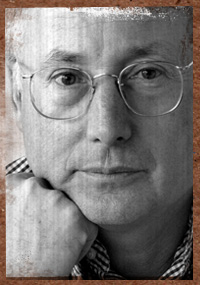
How did you come to write the book “The Baader Meinhof Complex”?
I was sub-editor of the magazine “konkret” from 1966 to 1969, so I knew a lot of people that would later have something to do with the Red Army Faction, either directly or indirectly, including Ulrike Meinhof. In 1970 I went to work for the German public broadcaster NDR, where I produced many reports on the subject of terrorism. And I had a great advantage over my fellow journalists in terms of information simply because I knew many of those involved. So for years this had been a subject that had occupied me and eventually I decided that I wanted to deepen my knowledge and give an as detailed account as possible of what had happened.
What was your reaction when Bernd Eichinger proposed to adapt your book for the cinema?
My reaction was: “About time too!” I had waited 20 years for Bernd Eichinger to approach me about making a film of “The Baader Meinhof Complex”.
Does the movie do justice to your book in your opinion?
My aim in the book was not to comment on the events I’m describing but only to give an as detailed account of them as possible. That’s why I did so much research and gathered all the available material. In other words, I tried to get as close as possible to both, the actual events and the people involved. I suppose that’s the reason why my book has neither dated nor lost its relevance. From the very beginning, I had the feeling that Bernd Eichinger and Uli Edel pursued the same goal – like me, they wanted to tell the story in all its complexities and at the same time tried to get to the core of it all. And I think they did a great job. Bernd Eichinger managed to condense the events that took place during those 10 years extremely well in his script. As far as I can tell, the people and the course of events have been captured very well. I’m deeply impressed and very moved by the movie.
Are there any scenes or moments in the film that particularly moved you? I’m not really the tearful type, but there are certain scenes in the film that really do affect me. Watching Ulrike Meinhof throw herself into despondency and despair and seeing how she’s unable to untangle herself from the hellish mess she’s gotten herself into, moved me the most. Martina Gedeck really managed to capture the essence of Ulrike Meinhof’s character. The film carries a great authenticity, so much that in parts it feels like a fly-on-the-wall documentary. Again and again you see images that, as a German, you’ve seen in newspapers or on television – images that are now ensconced in the collective consciousness of German society. At the same time, the film shows scenes, which a documentary could never show and thus opens up a new dimension to the story. I find that extremely impressive.
What was it like seeing yourself as a character on the movie screen?I think, at some point in my life I looked pretty much like that (laughs). Well, I do think I’ve been cast very well visually. There is one scene, in which my character interviews Gudrun Ensslin’s parents. In real life, this interview was carried out not by me but by another journalist. But since this doesn’t affect the course of the story, this scene is absolutely tenable dramaturgically. But of course the film shows events, which I witnessed personally and which happened exactly as they are portrayed in the film. For example, the demonstration at the Axel Springer Group Publishing House is incredibly close to what I experienced myself that night.
Some people still believe that Ulrike Meinhof, Andreas Baader, Gudrun Ensslin and Jan-Carl Raspe did not commit suicide but were killed. What would you say to this?
After the fall of the Berlin Wall, it was discovered that several ex-members of the RAF had been hiding in East Germany, where they had been given a new identity. All these ex-RAF members made statements to the police, which meant that a lot of new information came to light. One of the most important pieces of new information was the fact that following the killing of Hanns Martin Schleyer, a very frank conversation took place amongst RAF members, during which it was made clear to them that the deaths of Meinhof, Baader, Ensslin and Jan-Carl Raspe had indeed been suicides. I researched the suicide-question very thoroughly. Cynically speaking, it would have made a better story for my book if the RAF prisoners in Stammheim had been killed. But all the traces that even hinted at external influence on the deaths of the RAF-prisoners led to nowhere.